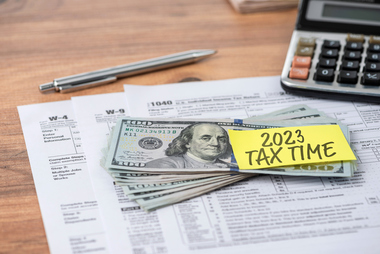Top Tax Issues for Businesses
Summary: Do you find yourself spending a sizeable percentage of your time preparing and submitting your taxes every year? You’re not alone. Many people find themselves in inadvertent noncompliance due to the complexity of taxes and the fact that the rules change every year. Click through to better understand the top tax issues for businesses so that you can avoid them this year.
Agencies typically apply different taxes to various situations based on each individual agency’s rules, regulations, and payment methods. Contrary to what people often say, what you don’t know actually can hurt you, so becoming more knowledgeable about tax issues that businesses often face is key.
Here are three common tax issues that can ultimately affect your bottom line in the long run:

- Underpaying taxes and keeping records poorly
The first common tax issue to be mindful of is accidentally underpaying your taxes as a result of incorrectly or negligently storing records. As a business owner, you will collect sales tax from your customers. Let’s say you fail to pay that sales tax to the state in which your business operates. As a result, you will inevitably end up underpaying your sales and use taxes, both of which you are obliged to pay.
Another example is a situation in which you operate a cash-based business and find yourself needing to prove your personal income. You may end up paying too little toward your income tax, thinking that your estimated quarterly tax is optional — but it is not.
In all actuality, paying quarterly taxes is mandatory, and you absolutely must pay your income taxes in full and on time. Otherwise, you will be subject to undesirable outcomes, such as costly penalties and high APR interest that will be applied toward your unpaid taxes.
Last but not least, failing to take care of your records and maintain accurate copies of them could result in many different problems when the tax-filing season rolls around. This is particularly true if you end up being audited by the IRS.
Keep in mind that sometimes people underpay their taxes merely because taxes are very complicated and the complexity of it all can confuse taxpayers. While it can be rather costly to hire a professional to help you with your tax-related matters, the consequences of inaccurately paying your taxes can be even more expensive. Being proactive can help you in the long run.
- Misclassifying your business or business-related matters
As a business owner, you already have a lot of responsibilities to handle, but the classification of your business is not a matter you should take lightly. Pay attention to even the littlest of details. For instance, look into whether a franchise tax exists in your state. If it does, you’ll need to determine which forms you have to fill out and how much tax you will owe based on your company’s business entity classification.
- Incorrectly classifying your employees
When hiring people to work for your business, you will have to decide whether you’ll onboard workers as employees or contractors. Take your time with this decision, as misclassifying an employee as an independent contractor or vice versa will impact how much you’ll need to withhold in taxes.
Some business owners avoid filing their taxes on time because they cannot afford the final tax balance they owe for the previous tax year. However, avoidance is not the answer, especially because failing to file your taxes can result in a number of negative consequences, ranging from sky-high interest rates and unwanted penalties to a 25% failure-to-file fee, which will be added to your overall bill if at least five months have passed since the date your taxes were due.
Thankfully, many of these issues are preventable when you know what to look out for and how to manage your taxes come tax time. It never hurts to hire a professional who understands business taxes, as they can help you adhere to regulations in a timely fashion.
Another way to make paying your business taxes much easier is to maintain accurate records throughout each tax year. Stay on top of the receipts associated with the deductions you plan to make, as deductions can sometimes yield additional proof that the money you spent was truly business related. Always save any tax files or workbooks that you used as you calculated your taxes as well.
Hold on to your tax records for four years at a minimum. Some people will even encourage you to maintain your records for no fewer than 12 years! Either way, make it a point to keep the records associated with the taxes you collected from customers in a distinctly separate account that is easy for you to access should you ever need to.
The best plan of action is to stay updated on current and ever-changing tax laws so you can be prepared to pay the amount you owe every year. And remember that not every company underestimates what it owes.
Rather, some businesses overpay their taxes, which typically results from their failure to claim all the tax deductions they are eligible for and take advantage of the credits available to them. Either way, sometimes the most common tax mistakes can have a significant impact on your company’s bottom line.
When you make it a point to always keep your business taxes in mind, you can turn the tax-planning process into a year-round activity. This can set you up for success; do not ignore all your tax-related matters until April. If you need additional assistance managing your business taxes, contact a professional today!
©2023

